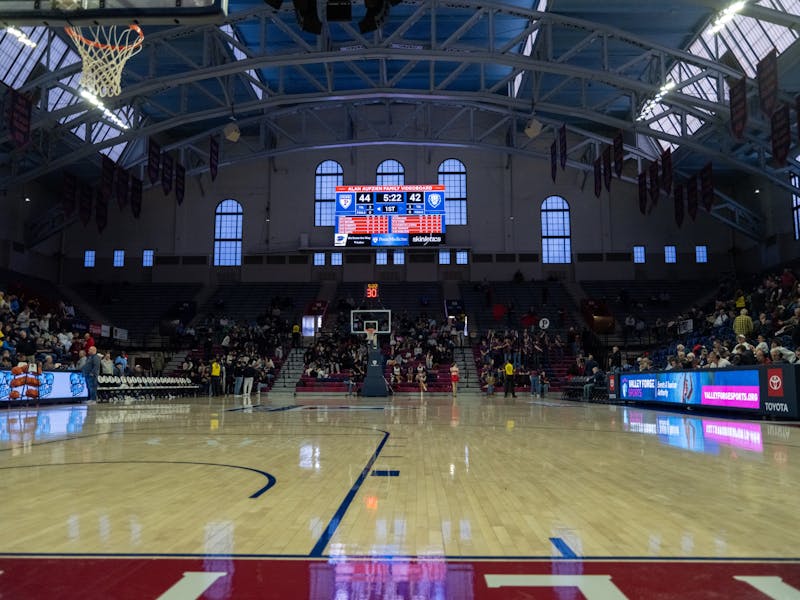Blaming “self-segregation” on minority groups is nothing new. To call out greek life, “similar cultural groups” and Du Bois College house as examples of widespread “self-segregation” is something that we need to think more critically about. But even more important is understanding where this kind of thinking comes from.
Let’s unpack why it is incorrect to think of cultural organizations and all greek life as the same, even if they do serve social functions. Traditionally, mainstream greek life has been predominantly white. It was white when students of color tried to join and were systemically discriminated against. It was white when the Multicultural Greek Council (now known as the Intercultural Greek Council) was established in reaction to the lack of space created for groups of color.
Sure, IGC groups and cultural groups are “similar” — insofar as they give marginalized students leadership experience, a community and an institutionalized voice. Lumping together all social spaces makes it seem like the purpose of groups for marginalized people are the same as spaces for traditionally white social groups. In fact, the mere existence of these spaces for the marginalized is historical, progressive and a form of protest against the dominant narrative.
But these spaces don’t just exist — they do real work. Other cultural spaces beyond cultural groups, such as Du Bois College House, have worked to empower marginalized groups, not to estrange communities. Naming Du Bois College house a “strange idea that complicates the already-difficult race relations at Penn, even if it arises from good intentions,” dismisses the college house’s history of working to empower Black students at Penn.
To minimize the history of these “good intentions” is to minimize a historical intention of fighting against discrimination, racism, police brutality and a general lack of institutional support for black students. It is to minimize the work of W.E.B. Du Bois himself, who, while working at Penn, wrote what is considered to be the first study on race in the world.
Du Bois College House does not complicate “already-difficult race relations” at Penn. Du Bois College House was a reaction to the “already-difficult race relations” at Penn in 1972 and continues to be an institutionalized way of breaking down these systems of racial injustice in 2016.
Let’s zoom out. This conversation is not just about the lack of acknowledgement around Du Bois College House’s history. It’s about being ignorant of the work that places such as Du Bois have put in to creating opportunities outside the classroom in which all students are welcomed and exposed to unfamiliar ideas and people.
This doesn’t mean the work is over. But to not acknowledge its existence is a way of erasing those of us who have been putting so much time, energy and passion into envisioning, creating, attending and engaging in these spaces.
So when it’s proposed that “we need to make an effort to engage with things unfamiliar to us,” let’s realize that people within marginalized communities have been making the effort and in very tangible ways. If marginalized people have been doing the work, to whom should this call to action really be addressed? Let’s be more specific about who is being asked to engage.
It’s time to call in the majority to engage in spaces that center around marginalized groups. It’s time to confront the role that a white male-centered society has had in oppressing marginalized people, their perspectives and their viewpoints. It’s on the majority to break down its fences.
Here are some easy first steps to get involved in this work (disclaimer: this is not nearly a comprehensive list of ways to get involved):
- Join the Greenhouse Intercultural Center (GIC), La Casa Latina, Makuu, and Pan-Asian American Cultural House (PAACH), Penn Women’s Center (PWC) and LGBT Center listservs to stay informed about and attend programming that marginalized communities are putting on.
- Attend a Penn First event.
- Like the pages of the 5B (Asian Pacific Student Coalition — APSC, Lambda Alliance, Latin@Coalition, Umoja and a United Minority Council — UMC) and Penn Association for Gender Equality (PAGE) on Facebook.
- Take a course in Africana Studies (AFRC), Asian American Studies (ASAM), Gender, Sexuality and Women's Studies (GSWS), Latin American and Latino Studies (LALS) and Native American and Indigenous Studies (NAIS).
SOOMIN SHIN is a sophomore in the College.
MIRU OSUGA is a junior in the College.
The Daily Pennsylvanian is an independent, student-run newspaper. Please consider making a donation to support the coverage that shapes the University. Your generosity ensures a future of strong journalism at Penn.
Donate








